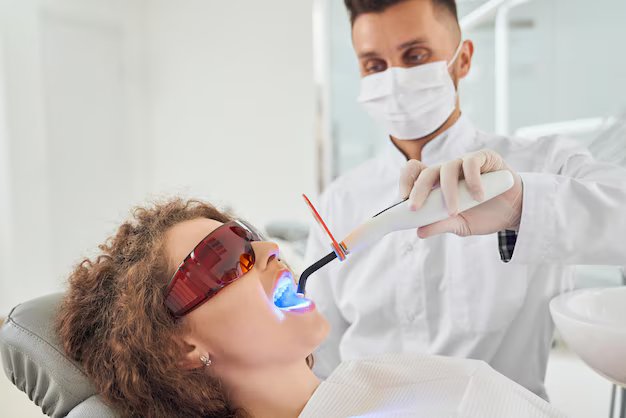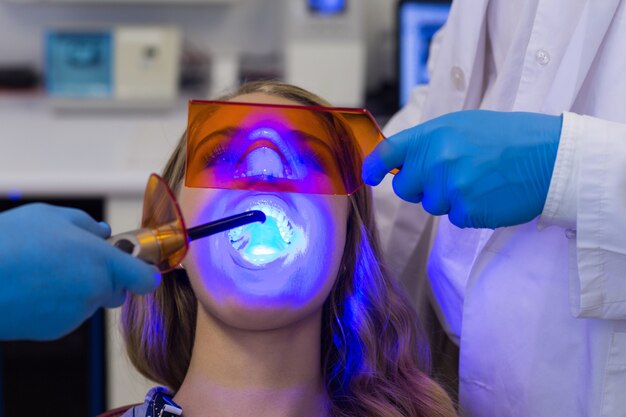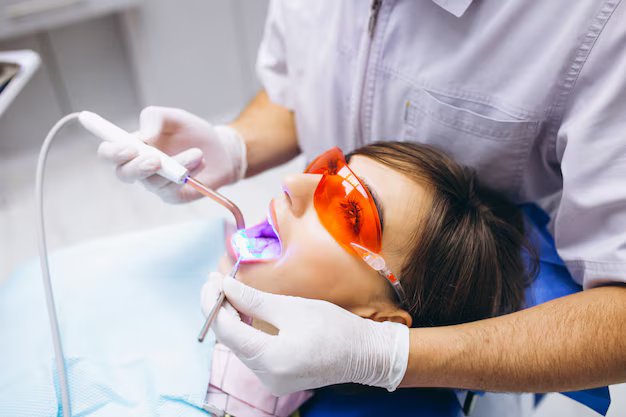LASER is an acronym for “light amplification by stimulated emission of radiation. A laser beam is a focused source of electromagnetic radiation or light energy. Simply, a laser beam is a concentrated Source of light energy composed of one wavelength, which travels in a specific direction, and all wavelengths of the laser light travel in phase. These properties differ from ordinary light, which is diffuse and non-coherent, allowing laser light energy to be directed accurately and with high intensity to a target
A dental laser is designed specifically for use in dentistry. Its usage in soft tissue dates back to 1990 and in hard tissue since 1996.


Erbium lasers are both hard and soft tissue capable. They can be used for a host of dental procedures and allow for more procedures to be done without local anaesthesia. Hard-tissue procedures like bone Cutting can be done with minimal thermal and mechanical trauma to adjacent tissues.
These procedures show an excellent healing response. Soft tissue applications with erbium lasers have rapid healing times with minimal postoperative pain. Soft-tissue lasers can also be used for aesthetic contouring of the gingiva within the smile framework, establishing teeth proportionally prior to bracket placement, crown lengthening, treatment crown height asymmetry or contouring of gingival and interdental margins. Nd:YAG lasers are primarily used for soft-tissue applications such as frenectomies papillectomies, and gingival incisions.


Hard tissue surgical lasers are dominated by Er:YAG lasers operating at wavelengths of 2.94 m. Laser eye surgery utilises excimer lasers in the UV range of wavelengths. Unlike many solid-state and diode lasers in the visible and near-infrared wavelength range (600-2,000 nm), the carbon dioxide laser wavelength (10.6 m) is highly absorbed by in-vivo soft tissues containing water.
Furthermore, modern CO2 laser technology makes these lasers far more affordable than solid-state Er: YAG lasers,[citation needed], which also feature a wavelength that is highly absorbed by water. Because of their wavelength and precision, CO2 lasers remain the dominant soft-tissue surgical lasers.
INDICATIONS:
Tooth Decay
Gum Diseases
Biopsy or Leson Removal
Healing Of Ulcers
Crown Lengthening in Gummy Smile Cases
De-Pigmentation
Teeth Whitening
Effective Cleaning Of Root
Canal In RTC Treatment
ADVANTAGES OF LASERS:
No Bleeding And Swelling
No Pain / Preserves Healthy Tissues
Less Usage of Anesthetic Agents
Faster & Better Healing
Very Minimal Medications
Call now or schedule your appointment for expert dental care and personalized treatment.